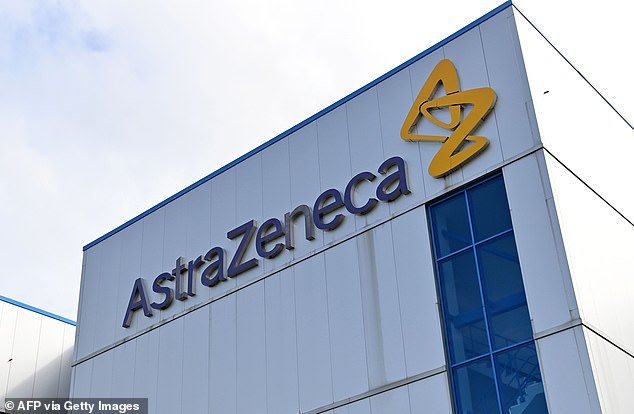- Britain’s biggest pharmaceutical maker plans to spend $2 billion upfront on Canadian company
- AstraZeneca will then follow up with $400 million in potential contingent payments
<!–
<!–
<!– <!–
<!–
<!–
<!–
AstraZeneca will buy Fusion Pharmaceuticals in a $2.4 billion deal to help strengthen its oncology portfolio.
Britain’s largest pharmaceutical maker plans to spend $2 billion upfront for the Canadian company, the equivalent of $21 per share, followed by $400 million in potential contingent payments.
The maximum possible value of the transaction represents a premium of 126 percent over Fusion’s closing stock price on Monday, or 97 percent just counting the initial cash amount.

Good results: Pharmaceutical giant AstraZeneca said a late-stage drug trial involving patients with advanced or recurrent endometrial cancer showed positive results
Based in Hamilton, Ontario, Fusion develops radioconjugate drugs, which many hope will replace traditional radiation and chemotherapy as cancer treatments.
Radioconjugates work by directly delivering radioactive isotopes to cancer cells via molecules such as peptides, antibodies, and small molecules.
AstraZeneca said such treatments reduce damage to healthy cells and provide access to tumors that cannot be reached with external beam radiation, a commonly used therapy in the fight against cancer.
“Today, between 30 and 50 percent of cancer patients receive radiotherapy at some point during treatment, and the acquisition of Fusion reinforces our ambition to transform this aspect of care with next-generation radioconjugates” , said Susan Galbraith, executive vice president of oncology. R&D at AstraZeneca.
The transaction comes less than a week after AstraZeneca agreed to acquire Amolyt Pharma, a clinical-stage biotechnology group specializing in treatments for rare endocrine diseases, in an £820m deal.
And last month, AstraZeneca completed the takeover of Chinese cancer therapy company Gracell and vaccine developer Icosovax.
The group earned more than $17 billion last year from oncology treatments alone, equivalent to more than a third of all its sales.
Its best-selling drugs include lung cancer drugs Tagrisso and Imfinzi, ovarian cancer treatment Lynparza and Calquence, which is given to patients with non-Hodgkin’s lymphoma.
Fusion’s current pipeline includes a drug in Phase II testing that could be a likely treatment for advanced prostate cancer.
John Valliant, Fusion’s chief executive, said the deal “combines Fusion’s expertise and capabilities…with AstraZeneca’s leadership in small molecules and biological engineering to develop novel radioconjugates “.
AstraZeneca shares were down 1.2 percent at £101.70 on Tuesday morning.
Susannah Streeter, head of finance and markets at Hargreaves Lansdown, said the drop in the share price reflected the fact that the Fusion takeover was “a relatively small transaction and future revenues may still be some way off, if any.” They come true.”
“But AstraZeneca is at the forefront of new cancer treatment methods and is not afraid to make multiple bets on potential first-class candidates.”

